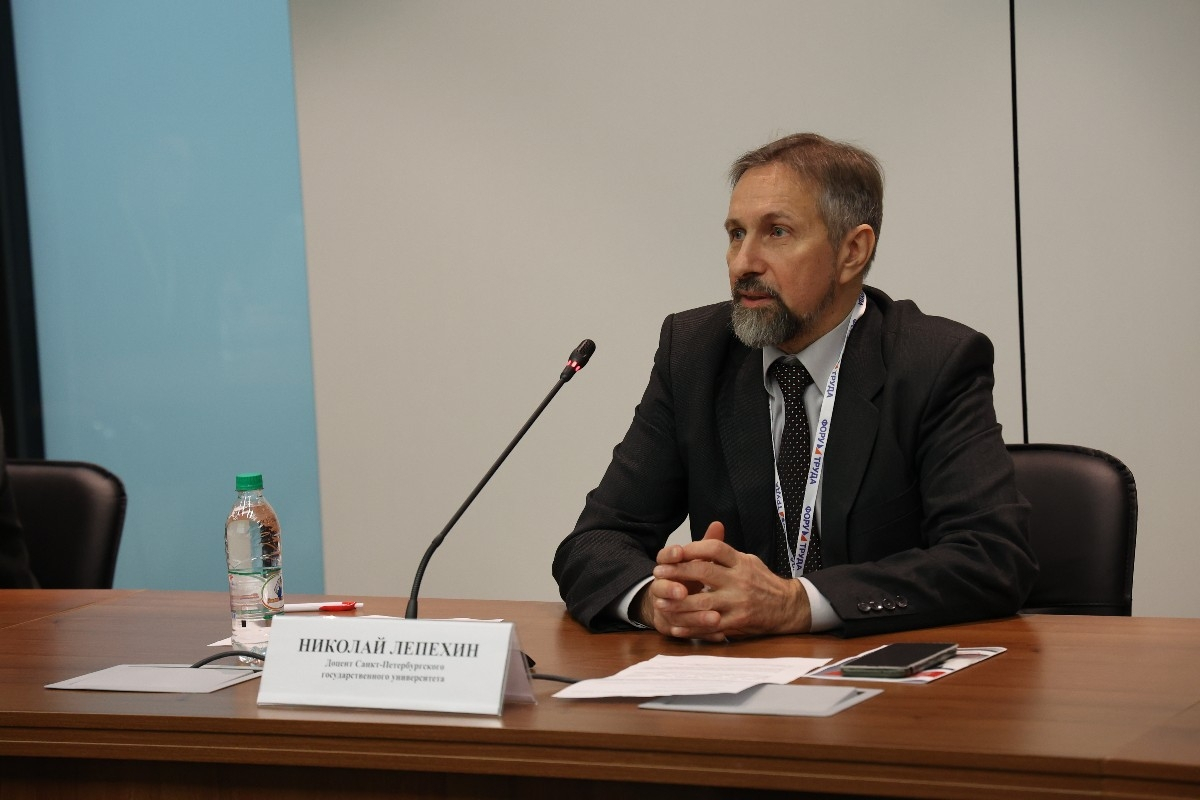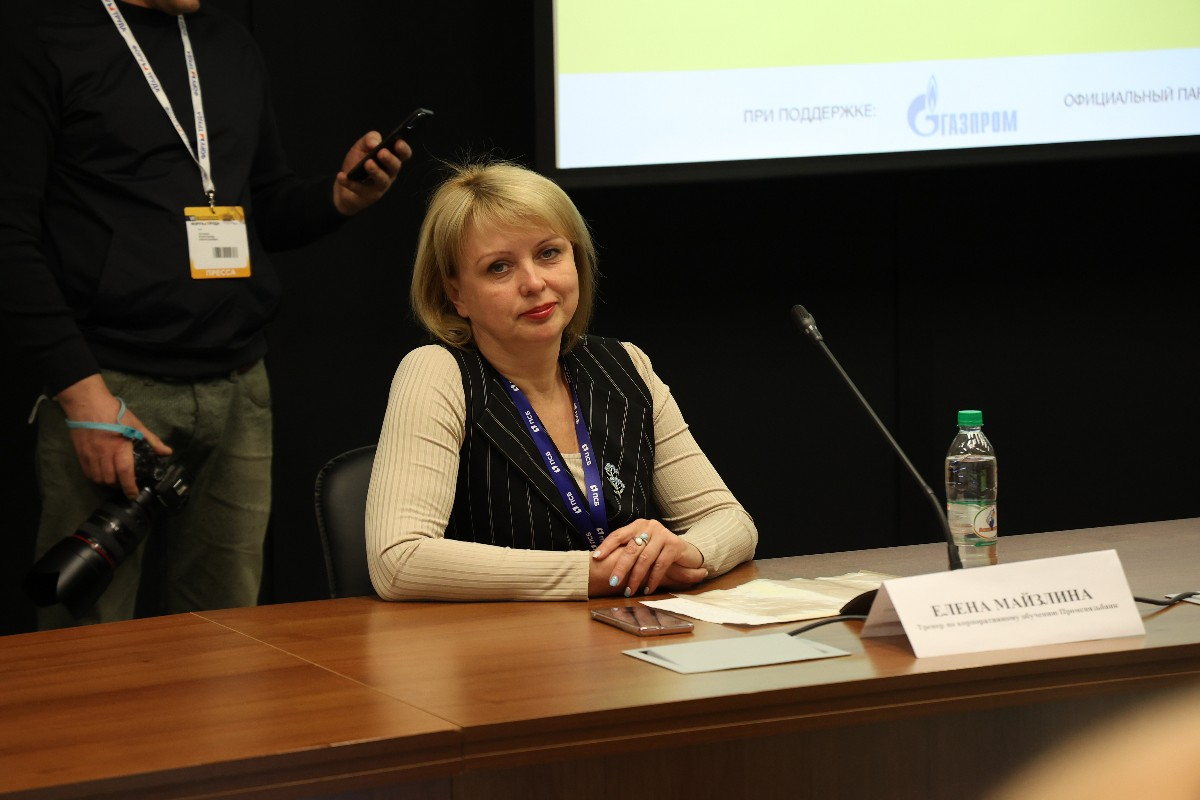Proactivity, transsubjectivity and "shared leadership" — trends discussed at the Labour Forum
At the recent Labour Forum, there was a symposium entitled Contemporary Trends in HR: Proactivity and Virtual Teams. The event, attended by representatives of the academic and business communities, focused on adaptation to the new realities that the COVID-19 pandemic has entailed.
The switchover to a remote format of work and the stepped up digitisation of information pose new challenges for HR managers. The differences between virtual and real teams, the stimulation engendered by employees’ proactivity, the enhancement of group interaction and many other concerns were brought to the attention of the experts at this event.
St Petersburg University Associate Professor Nikolai Lepekhin, who moderated the discussion, read out a greeting from the head of the annual Labour Forum workshop in management psychology, Sergei Manichev, Head of the Department of Ergonomics and Engineering Psychology at the University. In the greeting, Mr Manichev noted that a team of psychologists at the University is hard at work on current problems of personnel management and team forms of labour organisation. In particular, the project "Proactive behaviour in the contemporary design of work" has been completed, and next on the agenda is a study supported by a grant from the Russian Science Foundation — "The concept of developing team resilience in an organisation".

Professor Lepekhin presented a report on leadership in virtual teams. He noted that this is becoming a key issue in the context of distributed teamwork, which is now firmly entrenched in our lives. Authority now depends not on charisma and know-how, but on the mastery of communication technologies. In other words, there comes a time when a ‘real’ leader can give up their position with regard to virtual media. It is proposed that resolving problems should be done not only from the top down but also from the bottom up, that is, through the development of proactivity. Researchers today have begun to give prominence to "distributed leadership", in which team leaders can change during different cycles in the carrying out of a task depending on the competence of team members in different fields. Professor Lepekhin pointed out that reflection on the work done is an important part of teamwork, which psychologists are well aware of, but managers often forget.

Evgenii Astapenko, Assistant Professor in the Department of Ergonomics and Engineering Psychology at St Petersburg University, spoke about the results of research conducted among employees of the IT industry, for whom work in virtual teams is familiar and has been practiced for the last 20 years. The idea in the research was to determine the dynamics of proactive behaviour in teams and the resilience of the workers. Their aptitude for work and self-motivation were considered in terms of assessing developments in the course of their work. The authors came to the conclusion that this work is connected with certain chronological cycles, according to which the leader can competently organise it in the team and manage the motivation of its participants.
Resilience is the ability to overcome stressful situations while maintaining success, activity and internal balance. The term hardiness was introduced by psychologist Salvatore Maddy in the 1980s, and its translation into Russian was proposed by Dmitry Leontiev in 2000. With the onset of the pandemic, this concept is undergoing a second birth.
Moscow State University Professor Takhir Bazarov, who speaks every year at the workshop, presented a paper entitled "Transsubjectivity as a phenomenon of virtual teams". According to him, for Russian psychologists work with distributed teams is nothing new — in such a big country with many large companies, this was a challenge even before the pandemic hit. In virtual teams, the individuality of the members fades, and they take on the properties of transsubjectivity. Since a virtual group is guided not by a single purpose but rather an intricate system of motives, he added, its leader must now be not so much a manager as a dramatist and a director. The vulnerability that people commonly feel in a virtual environment is often overcome by turning to traditional, historically defined archetypal values — to ethnic, ancestral aspects.
The unfinished transformation has come up against a new reality. In an unconventional situation, which is, in fact, what we find ourselves in, transsubjectivity is becoming the most effective form of existence for virtual teams. Transsubjectivity, a special feature of human communities, is the ability to synchronise, without prior agreement, action that ensures readiness for what is to come and appears to have an archetypal foundation.
Takhir Bazarov, Moscow State University Professor
The general director of the Human-Service recruiting agency, Natalia Trukets-Enova, a psychologist who graduated from St Petersburg University, spoke about the practice of motivating remote teams. According to her, the effectiveness of remote work can be preserved as long as the "office" system of motivation is observed, and this requires a complex solution.
Svetlana Molchanova, an associate professor at RANEPA (the Russian Presidential Academy of National Economy and Public Administration), spoke about job burnout in the post-pandemic world. She added that research shows the first to burn out are young professionals — yesterday’s excellent students with a good education.
The 6th St Petersburg International Labour Forum was held from 16 to 18 March in a mixed format. The in-person part of the Labour Forum was organised at three venues: the Tauride Palace, St Petersburg University, and the Expoforum Exhibition and Convention Centre. The Forum is organised by: the Government of St Petersburg; St Petersburg University; the Inter-Parliamentary Assembly of States Members of the Commonwealth of Independent States with the support of the Ministry of Labour and Social Protection of Russia; and the Federal Service for Labour and Employment.
In other presentations, Dmitry Kirillov from Modum Lab, a company specialising in augmented reality technologies, presented a report on the latest IT tools in collaborative work. Elena Maizlina, the head trainer of the St Petersburg branch of Promsvyazbank, described the trends and practices involved in the corporate education of employees.








